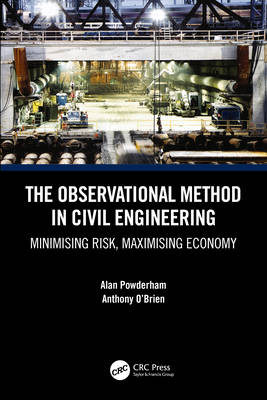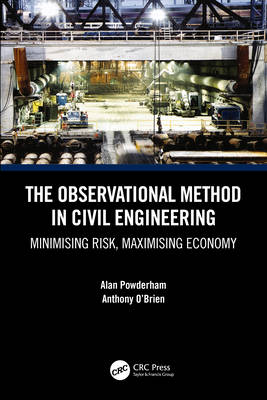
- Afhalen na 1 uur in een winkel met voorraad
- Gratis thuislevering in België vanaf € 30
- Ruim aanbod met 7 miljoen producten
- Afhalen na 1 uur in een winkel met voorraad
- Gratis thuislevering in België vanaf € 30
- Ruim aanbod met 7 miljoen producten
The Observational Method in Civil Engineering
Minimising Risk, Maximising Economy
Alan Powderham, Anthony O'BrienOmschrijving
The Observational Method (OM) is a natural and powerful technique that maximises economy while assuring safety. Its key features are highlighted in The Observational Method in Civil Engineering through twelve case histories from major infrastructure projects. They cover protection of adjacent structures including buildings and railway systems, bored and jacked tunnels, shafts and cofferdams, retaining walls, embankments, deep foundations, ground improvement and groundwater control. They illustrate how the OM can achieve more effective collaboration between the client and the design and construction teams, as well as how it can enhance the industry's ability to learn from experience, thus improving future practice and stimulating innovation.
Despite these advantages, the OM is significantly underused. The book demonstrates how the full potential of the OM can overcome a wide range of concerns and constraints. Other chapters address the advantages and limitations of the OM, the key role of progressive modification, the art of achieving agreement and the commercial and contractual environment.
The book will appeal to a range of construction professionals, including civil, structural and geotechnical engineers, contractors and owners. It will also be of interest to students and researchers.
Specificaties
Betrokkenen
- Auteur(s):
- Uitgeverij:
Inhoud
- Aantal bladzijden:
- 346
- Taal:
- Engels
Eigenschappen
- Productcode (EAN):
- 9780367361648
- Verschijningsdatum:
- 29/09/2020
- Uitvoering:
- Paperback
- Formaat:
- Trade paperback (VS)
- Afmetingen:
- 155 mm x 231 mm
- Gewicht:
- 521 g

Alleen bij Standaard Boekhandel
Beoordelingen
We publiceren alleen reviews die voldoen aan de voorwaarden voor reviews. Bekijk onze voorwaarden voor reviews.











